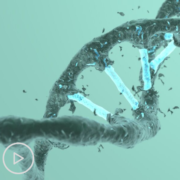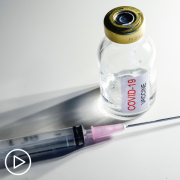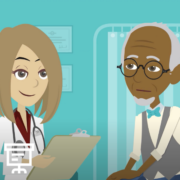What Causes a Gene Mutation?
Dr. Daniel Pollyea, an acute myeloid leukemia (AML) expert, describes gene mutations and potential reasons as to why they may occur.
Dr. Daniel Pollyea is Clinical Director of Leukemia Services in the Division of Medical Oncology, Hematologic Malignancies and Blood and Marrow Transplant at University of Colorado Cancer Center.
Related Resources

Predictive (Familial) Genetic Testing vs. Cancer Genetic Testing: What’s the Difference? |
Transcript:
Ross:
You’ve mentioned gene mutations. What mutates a gene? What causes that to happen that could lead down the line to AML?
Dr. Pollyea:
That’s a great question. Most of the time we do not know the answer to that. These gene mutations occur spontaneously, randomly, and we don’t understand why they happen when they do happen.
And I know that’s, again, not a satisfying answer. It’s very frustrating, particularly patients come in, and, “I’ve lived a healthy lifestyle. I’ve done everything right. I exercise. I eat right. How could this have happened?”
These are things that for the most part are out of the control of a person. These aren’t impacted by your diet or your activity levels, what you eat or don’t eat, what you do or don’t do. That’s a real frustration. In the end, in almost all cases we don’t know or understand why these gene mutations or these, I call them mistakes in the body, occur when they occur. We don’t understand them.












